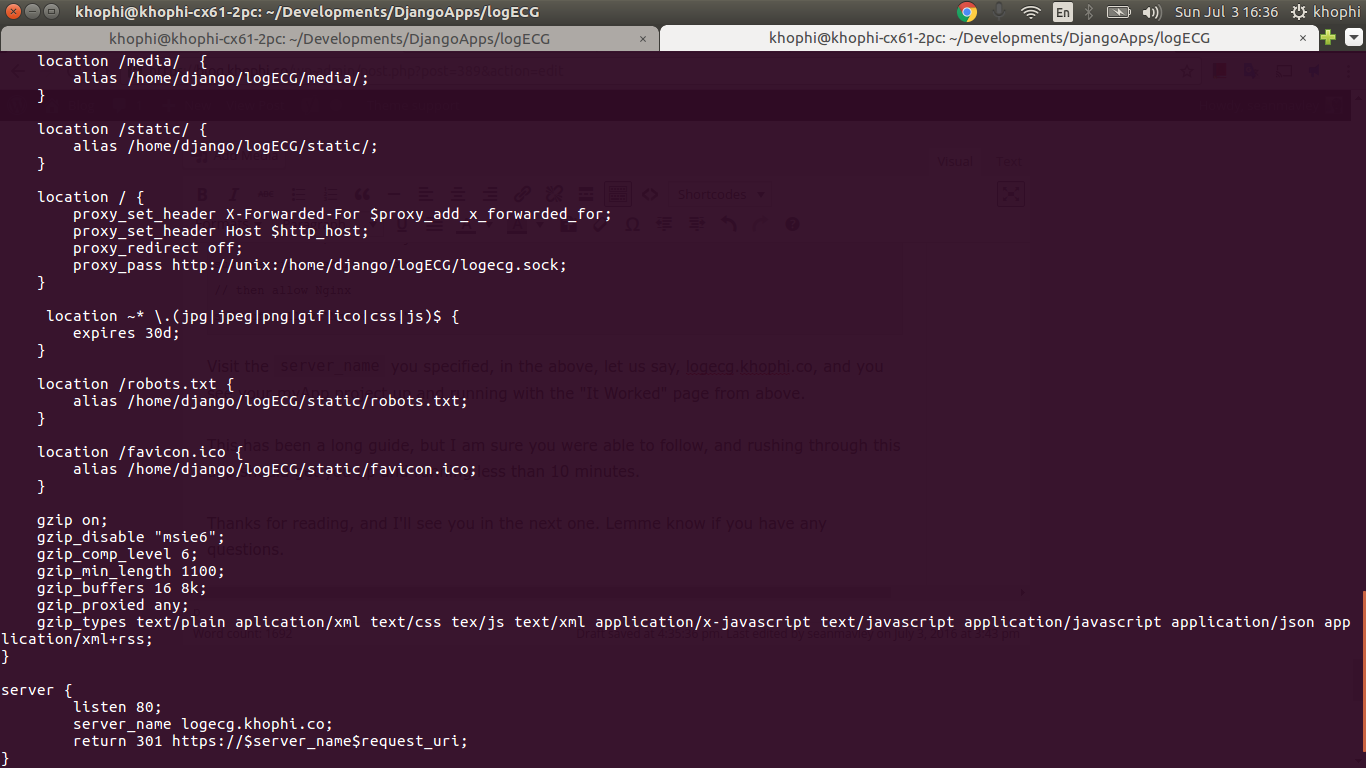Data URI your Images in Django
As I read the book, Two Scoops of Django, I come across lots of best practices (I wasn’t expecting otherwise though).
One that caught my eye was Data URI scheme. Simply put, this allows you to convert your images or css into some kinda gibberish things. In a much simpler way, the object (image, css) is encoded into its data form.
“This technique allows normally separate elements such as images and style sheets to be fetched in a single request rather than multiple HTTP requests, which can be more efficient.”
-quote from Wikipedia
Did you read the article linked above? If not, you can see an example of it to understand better, probably.
Append this filter/tag into your project, and just profit!
# templatetags/dataURI.py
from mimetypes import guess_type
from django import template
from base64 import b64encode
from django.contrib.staticfiles import finders
register = template.Library()
@register.filter
def datalize(filename, content_type=None):
"""
This filter will return data URI for given file, for more info go to:
http://en.wikipedia.org/wiki/Data_URI_scheme
Sample Usage:
<img src="{{ 'image.jpg'|datalize }}"/> or
<img src="{% static 'image.jpg'|datalize %}"/>
will be filtered into:
<img src="data:image/png;base64,iVBORw0...">
"""
if filename:
with open("static/" + filename, "rb") as f:
data = f.read()
encoded = b64encode(data)
content_type, encoding = guess_type(filename)
return "data:%s;base64,%s" % (content_type, encoded)
else:
return ''
@register.simple_tag
def data_url(path, content_type=None):
'''
Return a media url of this file
Use just like the {% static %} tag.
{% data_url "img/hamburger.jpg" %}
Optionally override the content type:
{% data_url "img/hamburger.jpg" content_type="text/plain" %}
'''
result = finders.find(path)
if result:
if not content_type:
content_type, encoding = guess_type(result)
# if no content_type, force below content_type
content_type = content_type or 'application/octet-stream'
with open(result, 'rb') as f:
return 'data:%s;base64,%s' % (
content_type,
b64encode(f.read()),
)
else:
return ''
I hope you find the above snippet useful.
Will see you in the next one!

